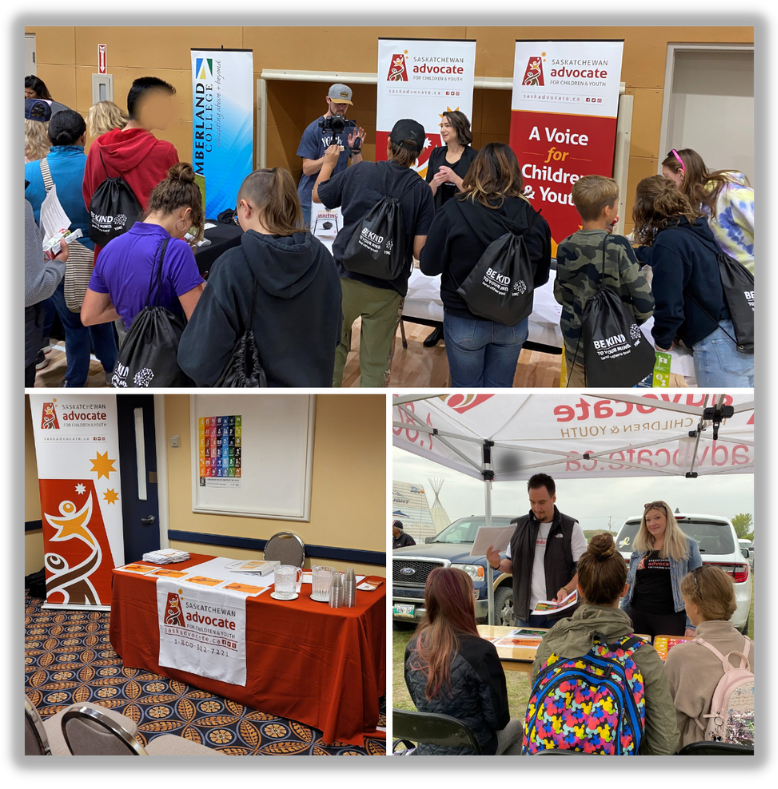Among the authority and responsibilities under The Advocate for Children and Youth Act is the legislated mandate to become involved in public education respecting the interests and well-being of children and youth. This is a critical component of our work in ensuring young people, their caregivers, and child-serving professionals know about our work, children’s rights, and how to reach us.
In addition to ongoing case work, our Regional Advocates, who are assigned to geographical regions throughout the province, take the lead on public awareness, to establish new relationships and foster existing connections with children, youth and stakeholders.
At the forefront of the Advocate’s public education program is raising awareness of the office’s advocacy role for children and youth, and to engage youth in the activities of the office. To do this we attend special events, meet with young people in their own communities across Saskatchewan, do interactive presentations in schools, and post information on our social media platforms – always being open to a variety of ways of reaching young people in Saskatchewan.
We provide education to professionals working with Saskatchewan’s child-serving systems on the human rights of children and youth as per the United Nations Convention on the Rights of the Child (UNCRC) and The United Nations Declaration on the Rights of Indigenous Peoples (UNDRIP). It is important for such education to occur because:
It is essential for those providing services to Indigenous children and youth to understand Canada’s legal commitment to UNDRIP, and the framework of minimum standards for the survival, dignity, and well-being of the Indigenous peoples as well as existing human rights standards and fundamental freedoms as they apply to the specific situation of Indigenous peoples.
